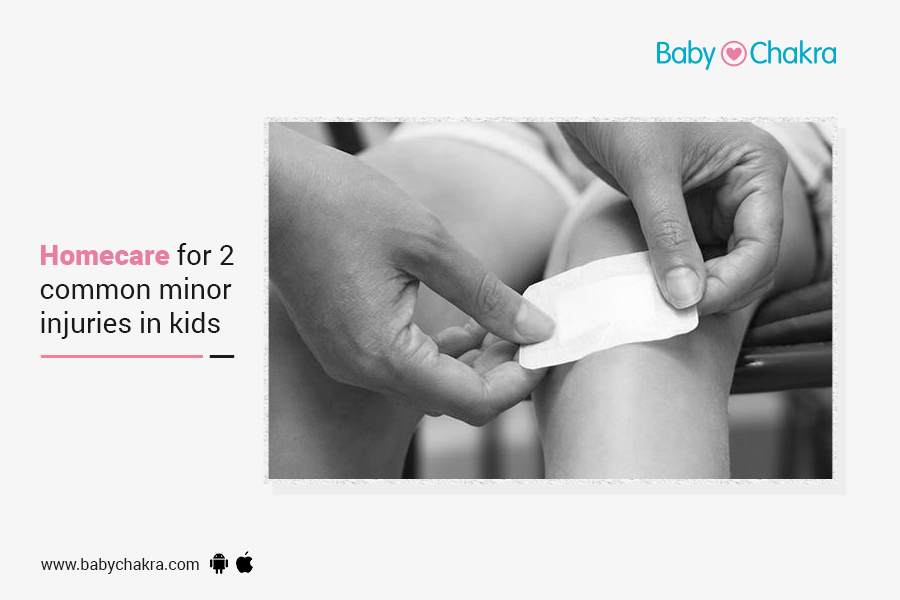
Homecare For 2 Common Minor Injuries In Kids
12 Oct 2022 | 2 min Read
Dr Sarita Bhatia
Author | 1 Articles
As parents, we get really worried when our child gets hurt. Kids getting hurt is an inevitable event. Be it while playing outdoors, or at home, when kids get hurt there are a few things that you can do to manage it at home and support its healing. Here are 2 such common injuries and their homecare
· Blunt trauma
Blunt trauma is an injury that doesn’t involve an active injury but appears as a swelling with redness and the child cries out of pain. These kinds of injuries happen when kids get hit with a ball, fall from the bed, etc. The first thing to do in such injuries is to make the child at ease and apply an ice pack outing hard pressure on the site of injury. Additionally, Arnica which is a homeopathic remedy can also be used to manage the pain. In case the pain isn’t getting under control or the child is showing signs like vomiting than do visit the medical facility.
· Nasty cut or abrasion
Such injuries happen when kids fall from a bike, slide in the mud, or have other mild outdoor causing injury to knees or hands. The first thing to do in such cases is to wash the wound with antiseptic soap and water followed by cleaning it with an antiseptic liquid/solution. In case there’s any kind of dirt or debris getting accumulated in and around the wound make sure you get it cleaned by a physician. Avoid applying non-medicated products or turmeric to the wound. Additionally, you can use homeopathic remedies like arnica or calendula tincture for the same. Lastly do not forget to take tetanus shots. If the pain gets severe or swelling increases get your kid examined by your doctor for any kind of fracture.
A


Related Topics for you
Suggestions offered by doctors on BabyChakra are of advisory nature i.e., for educational and informational purposes only. Content posted on, created for, or compiled by BabyChakra is not intended or designed to replace your doctor's independent judgment about any symptom, condition, or the appropriateness or risks of a procedure or treatment for a given person.
